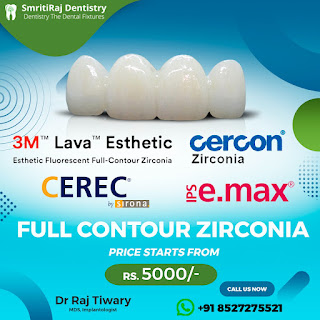What are dental crowns and bridges, and in what situations are they recommended as dental treatments?
Dental crowns and bridges are common dental treatments aimed at restoring or replacing damaged or missing teeth. Let's delve into each of these procedures to understand their purposes and the situations in which they are recommended.
Dental Crowns
A dental crown, also known as a cap, is a custom-fitted cover that is placed over a damaged or decayed tooth. Here are some scenarios in which dental crowns are recommended:
1. To Restore a Damaged Tooth: When a tooth is significantly decayed or has undergone a root canal treatment, a dental crown provides strength and protection, preventing further damage.
2. To Improve Tooth Appearance: Crowns can be used for cosmetic purposes to enhance the appearance of discolored, misshapen, or poorly aligned teeth, creating a more aesthetically pleasing smile.
3. After Dental Implant Placement: Dental crowns are often used to cover dental implants, serving as artificial teeth that look and function like natural ones.
4. To Strengthen Weakened Teeth: Teeth that are weakened due to large fillings or fractures can benefit from crowns, as they provide structural support and prevent further breakage.
Dental Bridges
Dental bridges are prosthetic devices used to replace missing teeth by bridging the gap between adjacent teeth. They consist of artificial teeth (pontics) anchored by dental crowns on the neighboring teeth. Here are situations in which dental bridges are recommended:
1. To Replace Missing Teeth: Dental bridges are an effective solution for individuals with one or more missing teeth, providing both functional and aesthetic benefits.
2. Maintaining Facial Structure: Missing teeth can lead to changes in facial structure over time. Bridges help maintain the natural shape of the face by preventing adjacent teeth from shifting into the empty space.
3. Restoring Chewing and Speaking Functionality: Bridges restore the ability to chew food properly and speak clearly, which may be compromised by missing teeth.
4. Alternative to Dental Implants: For individuals who are not candidates for dental implants or prefer a non-surgical option, dental bridges offer a reliable tooth replacement solution.
In summary, dental crowns and bridges are versatile treatments that address various dental issues, from restoring damaged teeth to replacing missing ones. Your dentist will assess your specific situation and recommend the most suitable option based on factors such as the extent of damage, the location of the affected tooth, and your overall oral health. It's essential to consult with a dental professional to determine the best course of action for your individual needs.



Comments
Post a Comment